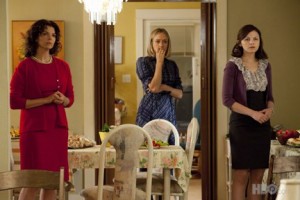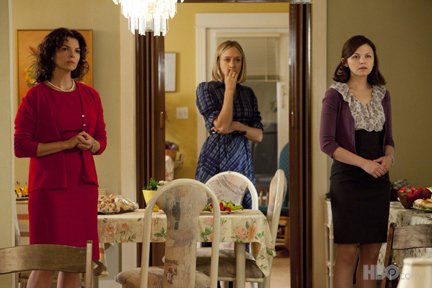Big Love, my favorite winter (and sometimes summer) show, ended on March 20 after five seasons. Despite the fact that the Henrickson family — large, pious and polygamous — is nothing like mine, the characters are so well developed that I understand them, even though I cannot relate to them. For seven years (yes, HBO airs shows whenever it feels like it), I grew with the family.
And the family itself certainly goes through a lot of growing pains: a father-in-law tries to snatch away control of a hardware franchise and goes on trial; his son takes his place and tries to keep his community free from sin, even though he is its biggest sinner; a sister-in-law uses anti-freeze to solve all her problems; a wife compromises again and again, leaving twice before finding a higher calling; another wife moves from being her hometown’s biggest champion to its biggest detractor; a younger wife discovers herself and her faith; and a daughter goes onto make movies marries and movies to Portland. Altogether, the Bill Henrickson and his wives and children sustain at least five marriages, one divorce, one unsealing, two resealings, three pregnancies and one death.
If you haven’t gotten a chance to see the finale yet and don’t want it spoiled, you should stop reading…now.

I found the series finale satisfying. Every important storyline wraps up, although, honestly, did Bill have to die? It certainly seemed like the only way for Bill and Barb to sort out their differences would be for Bill to accept Barb as a priesthood holder. But he seems to have realized it during the Easter worship. Either way, the wives have all come into their own in the epilogue. The eldest Henrickson children, those most struggling with faith and family, have found their balance.
The finale also seems to have driven home the show’s theme that family — any kind of family — is at the center of everything. Bill’s epiphany (“Faith comes from family”) explains (in part) Margene’s embrace of faith. It also explains why Barbara could turn to polygamy, but not to a church that would allow her religious independence. It also could explain (rather insidiously) why Carl, someone who was losing his family, turned to murder.
Anything replacing Big Love on those snowy Sunday nights has multiple big shoes to fill.

